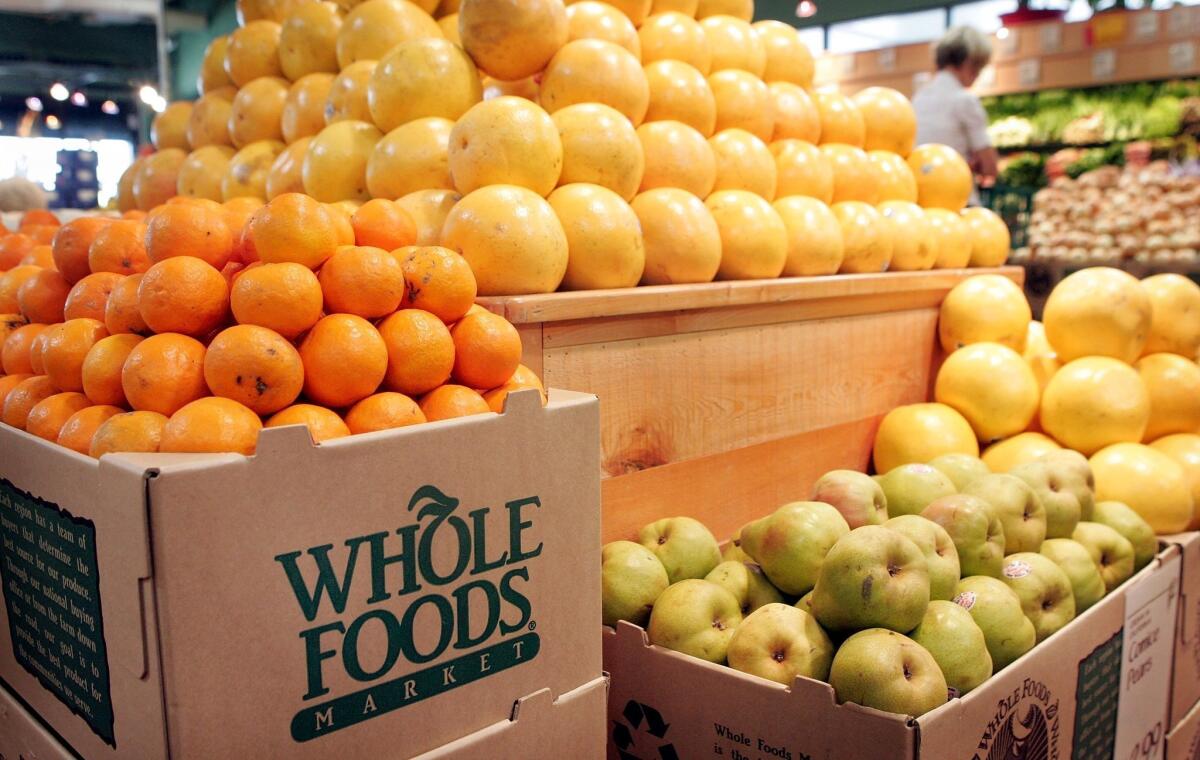Prop. 37: A better idea than labeling GMOs

- Share via
I recently took to this blog to ‘fess up. Although I care deeply about the food I consume, I wrote that I wouldn’t be voting for Proposition 37, which would label most food containing genetically modified ingredients. It’s not that I don’t support transparency or a consumer’s right to know what’s in his or her food. Quite the opposite. But I questioned whether it makes sense to focus our attention on GMOs, which unlike tobacco have no proven health risks (at least according to credible scientific research), when we really ought to be slapping warnings on foods that contain toxins. And yes, I realize that GMOs sprayed with pesticides would fall under that much-broader umbrella.
Not surprisingly, my post didn’t earn me a whole lot of fans. And I understand readers’ concerns. I agree that we should be able to trust that the food we eat today won’t make us sick tomorrow, especially when we go out of our way to make nutritious choices.
One reader, Ryan DeJager, took issue with my argument, writing:
“Innocent until guilty” should not be the standard of safety when it comes to food/chemicals. Long-term studies showing that the product is NOT dangerous is what we want, not just someone saying “Well, we don’t have studies showing that they are dangerous YET...”
CRGreeley took a similar stance:
I don’t care about the studies. When I go to the market, I simply want to know if the can of corn I’m considering buying with MY MONEY was derived from GMO. Maybe I’ll buy it anyway, or maybe I won’t. Either way, it’s my money, my choice.
Those who are against labeling are against you making choices on how you spend your money -- plain and simple.
I was about to start replying to these readers when KevinFolta -- presumably this scientist, though he did not return my email to confirm -- hopped on the comments board to serve as the voice of reason. He wrote:
CR, you frame perfectly why our nation is a mess. “I demand it, I want it now, and I don’t care what science says.” We can’t set a precedent on making scientific decisions based on your feelings. Anti-GMO = climate denial = anti vaccine = anti-stem cells = creationists = birthers, etc. All want changes in policy because they think they are smarter than science.
A reader with the moniker MichaelM2 also agreed that the jury’s still out on GMOs, but nevertheless, he advocated for a temporary label-till-we-know approach. GMOs, he said, “may be the most important invention of our time in terms of ending starvation, or they may be a future DDT type crisis. Let’s take the time to find out which.”
Or conversely, we can avoid a haphazard knee-jerk reaction to a hypothetical threat while we continue to push for more research. Most organic food is clearly labeled anyway, meaning consumers are already empowered to make informed decisions at the grocery store.
Another reader on our comments board, however, asked a question that made me pause. “I wonder if the author of this opinion has children,” asked Anon_4th Gen LA. “If so, the author may be willing to use her children as guinea pigs, but I am not.” I don’t have children, and when I do, if I do, I certainly wouldn’t use them as a science experiment. They’d eat organic, just like my husband and I do, and they wouldn’t know what a microwave looked like until they saw one at a friend’s house.
If it were up to me, we’d go beyond labels and simply make it illegal to sell food containing toxins, not just in California but at the federal level. (Ryan DeJager: That means your corn wouldn’t come in a can unless that can were BPA-free.) If I had my way, we wouldn’t have to wonder whether the produce is safe to eat because it would all be organic. It would come from sustainable farms, such as T & D Willey Farms, which the New York Times’ Mark Bittman recently wrote about, where the quality of the food is as carefully considered as the treatment of its laborers and land.
But if we have to resort to labels, they should be clear to consumers. Otherwise they’ll become meaningless. And that would be a terrible outcome.
ALSO:
PHOTOS: Seven foods, genetically engineered
Endorsements: The Times’ recommendations for Nov. 6
Follow Alexandra Le Tellier on Twitter @alexletellier
More to Read
A cure for the common opinion
Get thought-provoking perspectives with our weekly newsletter.
You may occasionally receive promotional content from the Los Angeles Times.






